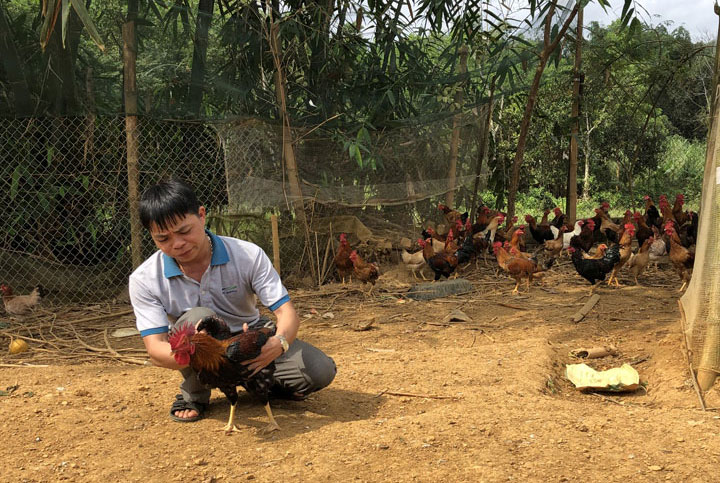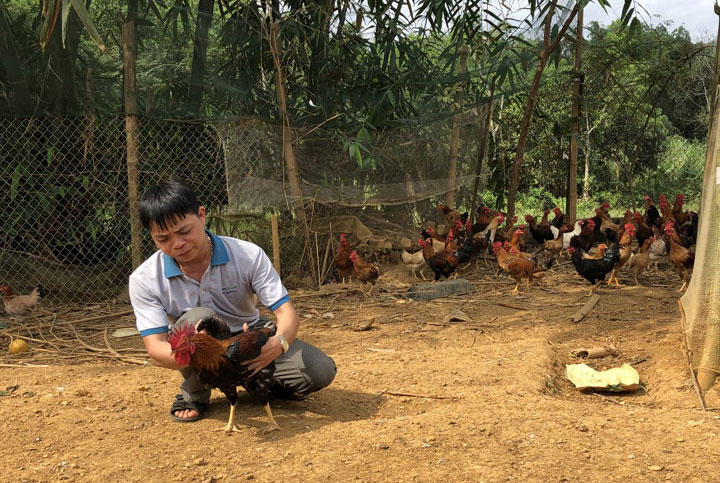



Mr. Bui Van Thiet, the chairman of the cooperative group raising Hill Chicken (Mu hamlet, Yen Nghiep commune) owns the chicken farm with over 5,500 heads, earning over 125 million VND a year.
Mr. Bui Van Thiet, the chairman of the cooperative group raising Yen Nghiep Hill Chicken is one of the members with the most number of chickens in the group. Mr. Thiet started raising chickens 5 years ago. At the beginning, he was raising and studying on animal husbandry techniques at the same time, so the productivity and production were not high. Having been supported to participate in science and technology conversion class, he replicated to raise 500 children from 200 initial children. Up to now the chicken flock has reached several thousand with the main varieties such as Lac Son chickens, and Lac Thuy chickens.
Mr. Bui Van Loi in Mu hamlet, Yen Nghiep commune says that participating in the cooperative group raising Yen Nghiep Hill Chicken, I was supported by the members of the team, sharing breeding experiences and guiding the application of science and technology. Thanks to that, up to now, I have built a chicken hill farm on 4,000 children. Established from August 2018, the cooperative group raising Hill Chicken had 5 members with a total of 24,000 chickens. The cooperative group has encouraged and helped many young people to participate in economic development through connecting them to have opportunities to access the capital, to learn experiences, to transfer scientific and technological advances and consumer markets and business. Initially, the chicken consumption activities were mainly from the familiar consumption sources, the local traders and the surrounding areas.
According to the plan set by the Management Board, the members of the cooperative group meet once a month to exchange, share experiences and discuss new development directions. Thereby, the members are gradually creating the links in production, supporting each other in terms of the capital and technology to develop and attract more active young people. Currently, the group has found more sources of consumption. It is very famous and it has a foothold in markets outside the province such as Ha Vy poultry wholesale market (Thuong Tin - Hanoi), Phu Tho, Ninh Binh.